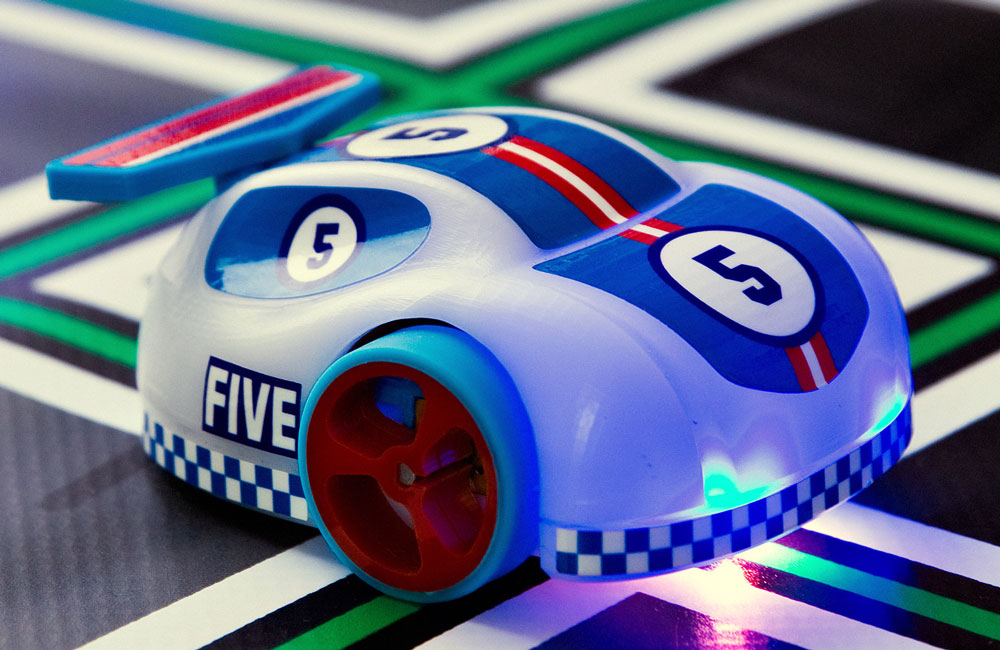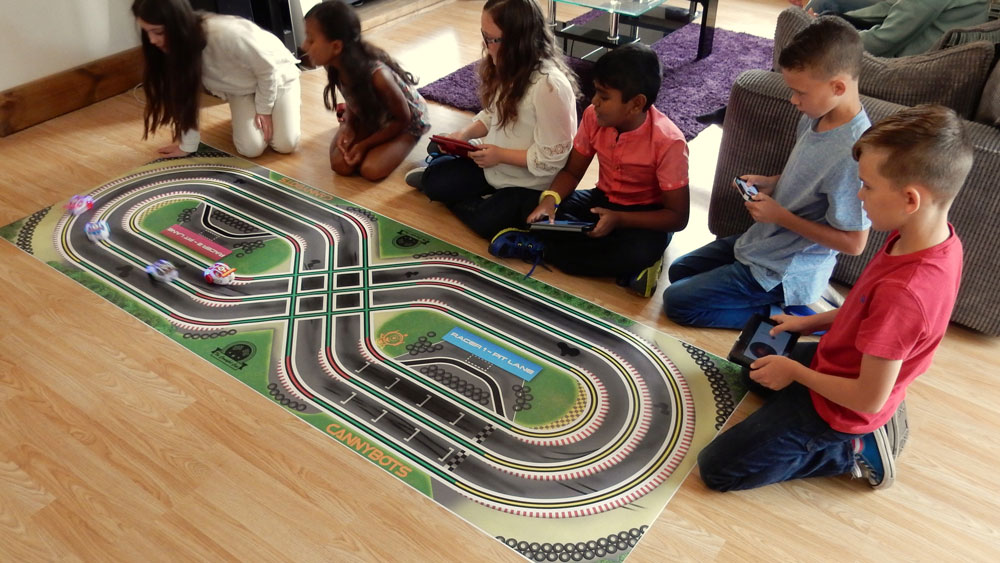
Robohub.org
Cannybots: Smart toy cars for play and learning
 Cannybots are smart toy cars that introduce kids to programming, 3D-printing, robotics and AI, through play. They can be controlled and programmed from a phone or tablet to drive around, or to play fun games like Sumobot wrestling. Cannybots are currently on Kickstarter.
Cannybots are smart toy cars that introduce kids to programming, 3D-printing, robotics and AI, through play. They can be controlled and programmed from a phone or tablet to drive around, or to play fun games like Sumobot wrestling. Cannybots are currently on Kickstarter.
I would like to share the story of Cannybot with the RoboHub community, which I have been part of for so long. I have always been a take-things-apart person, disassembling just about anything that caught my interest in order to explore what was inside and how it worked. This included my grandmother’s tape recorder, the family clock, and all the toys I had. Though my grandmother was really upset with me at that time, she eventually found peace when I was accepted to the Robotics Institute at Carnegie Mellon University in 2005.
If we can empower our kids to use technology to build their toys, imagine what they can make when they grow up.
As a dad, I am amazed by the kind of technology that our kids have at their fingertips today. But unfortunately all this technology is packed into products in a way that makes it mostly inaccessible. With no opportunity for exploration and learning, this makes kids mere consumers of technology.
That is why I created Cannybots — almost two years ago — as a fun side project to do with my son. I wanted to make a toy he could build, take apart, hack, tinker, improvise, and explore how the various the components come together.
About a year back we took the 3D printed version of Cannybots to the London Makerfaire where it was spotted by a design teacher at a local school who wanted to use it in his 3D printing class. Realising the potential of Cannybots in schools, we secured an Innovation grant from the UK government (Feb 2015) to mass produce the education version of Cannybots. We have since assembled a great team of likeminded people around Cannybots as well as partnerships with Autodesk and Cambridge University (for developing the AI). To date we have sold over 200 Cannybots to 22 schools world over, primarily though word of mouth publicity and referrals.
Our vision is to make Cannybots accessible to all kids. That is why we have partnered with the KIPP foundation that runs 183 chartered schools in US for children from low-income families. We will donate one Cannybot kit for every 100 units pledged on Kickstarter, and help set up robotics and 3D-prinring program in select KIPP schools.
Cannybot brings the power of making, tinkering and exploration to kids. At the very least, it’s a toy that has many play possibilities, but for those who are curious it will provide a journey into the depths of the technology. Though this Kickstarter campaign we hope to build a strong community of early adopters that can help nurture this product to its full potential. I hope the Robohub community can help us in the cause by supporting our campaign!
To show your support please consider pledging $1 to our campaign.

tags: c-Education-DIY, Crowd Funding, education, robot toys





